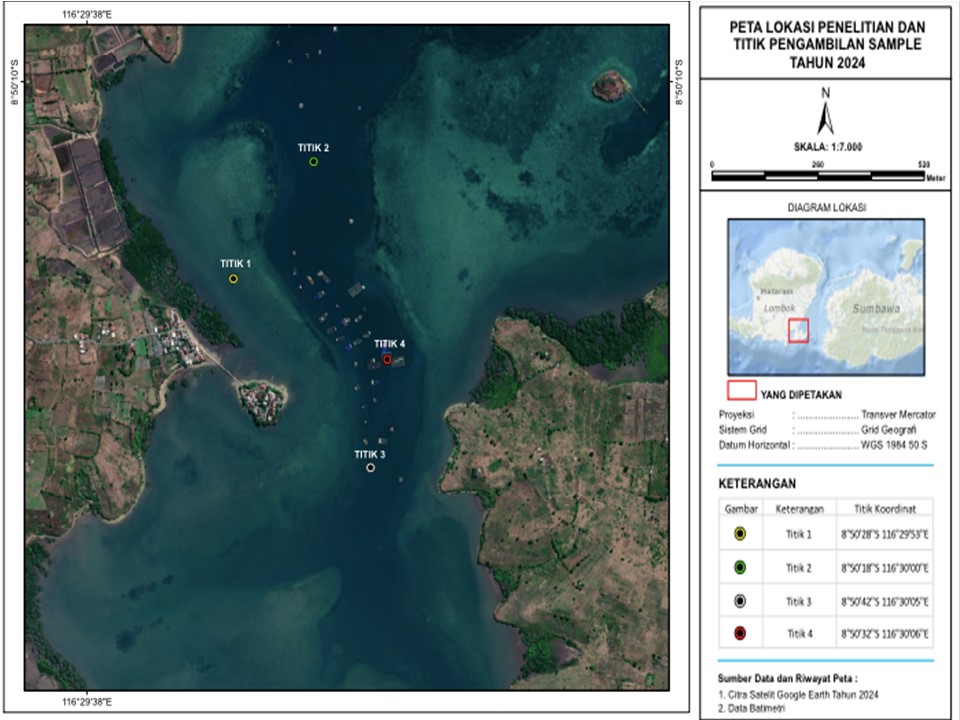POLIKULTUR LOBSTER PASIR (Panulirus homarus) DAN IKAN BARONANG (Siganus sp.) PADA KERAMBA JARING APUNG DI DUSUN UJUNG BETOK LOMBOK TIMUR
DOI:
https://doi.org/10.36706/jari.v13i1.31Keywords:
Spiny lobster, Rabbitfish, Polyculture, Productivity, Survival rateAbstract
Polyculture of spiny lobster and rabbitfish is a cultivation system that combine two different types of fishery commodities in one cultivation container. The advantages are increased land productivity, efficient use of resources and diversification of cultivated production. This research aims to establish the effect polyculture of spiny lobster and rabbitfish on the stocking density of rabbitfish which is different from Floating Net Cage (FNC) system. The research was conducted in the coastal water Dusun Ujung Betok Pemongkong Jerowaru East Lombok. The size of the FNC used is 2m3. The weight of spiny lobster used ranged from 95-98g and the rabbitfish is 12-15g. The research was conducted using a Completely Randomized Design (CRD) with 3 treatments, A (30 spiny lobster/m3 without rabbitfish), B (30 spiny lobster/m3 and 5 rabbitfish) and C (30 spiny lobster/m3 and 10 rabbitfish). Based on the research result, it was found that the absolute weight gain of lobsters during 45 days of rearing was in the range of 10.7 g – 11.6 g. The absolute weight gain of rabbitfish was 14 g – 19.8 g. There is significance in the survival rate of spiny lobsters, where the best treatment is C 93.33%. The survival rate (SR) value for rabbitfish reaches 100%. The results of the study represented that polyculture of spiny lobsters and rabbitfish affected the productivity and survival rate of both species, but not their growth.
















